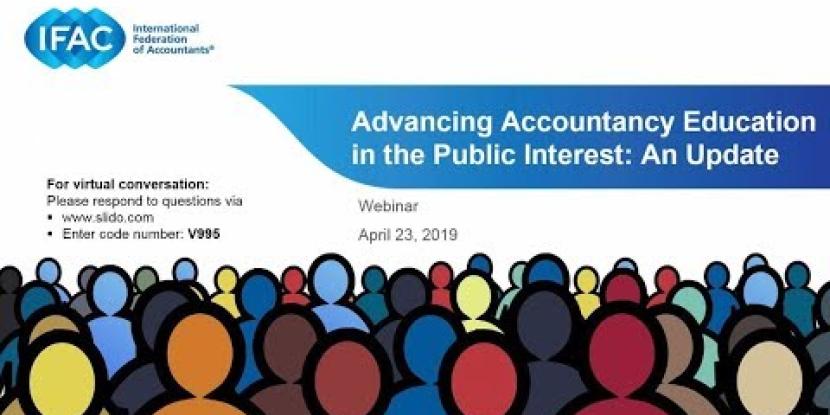IFAC and the International Accountancy Education Transition Advisory Group recently held a second multi-stakeholder webinar to update the education community on the transition to a new approach to advancing accountancy education (the first webinar is available online).
Speakers detailed the new comprehensive and integrated approach, which is designed to be relevant, responsive, effective, and open. It also:
- Harnesses IFAC’s comparative advantages—natural facilitator, trusted intermediary, influential voice, and a global knowledge-sharing platform—to respond to challenges and opportunities in an agile, effective, and efficient manner.
- Benefits from the advice and advocacy provided by an International Panel on Accountancy Education as well as access to knowledge and resources.
- Draws on the output of a multi-stakeholder engagement framework.
- Optimizes resources and knowledge from across all IFAC activities.
- Importantly, leverages IFAC member organizations’ resources and knowledge.
IFAC and the Advisory Group also assured participants that accountancy education remains a key component of the IFAC strategy, which in the future will draw on engagement framework and advice from the Panel to deliver a wide range of services. This includes maintaining and promoting the International Education Standards (IES) and supporting implementation through guidance and capacity building; providing thought leadership; commissioning research; advocating for quality accountancy education; and engaging with a wide range of stakeholders.
During the webinar, participants provided input on the proposed outputs under the new approach. They reviewed an illustrative consultation process for future revisions to the IESs, and highlighted specific advantages: pragmatic, strategic, inclusive, consultative, collaborative, and flexible. They also flagged a few concerns, including if the process might take too long, whether the reliance on key stakeholder resources and knowledge is feasible, the selection of topic experts and working groups, post-implementation reviews, and oversight.
Under IES adoption and implementation, participants highlighted a lack of awareness, diverse legal frameworks, scarce implementation guidance, and fragmentation of responsibilities as some of the root causes of low adoption. For low implementation, they suggested communication with stakeholders that goes beyond professional accountancy organizations (PAOs), easy-to-access practical implementation tools, PAO-to-PAO partnerships, and regional workshops.
Participants suggested various information technology-related topics for future thought leadership, as well as soft skills-related topics and ethical decision making. They discussed the role of accountancy academics in the new approach, and identified other key stakeholders, including universities, regulators, employers, regional projects (such as the Common Core Project), and global development agencies.
Next steps include establishing the Panel and other actions to ensure the successful transition from the International Accounting Education Standards Board to the new approach.
Thumbnail

